RESOURCE
EQUIPPING CHURCH LEADERS EVENTS & SERVICES
JANUARY – APRIL
Shoring up our confidence
Scott Harris
Faster, higher, stronger...longer?
Prayer in worship
Special Report: 3 kinds of interim pastorates

Mark Emerson Easter season outreach ideas
ILLINOIS BAPTIST
STATE ASSOCIATION
SPRING 2022
+
It’s time for revival AWAKE!
January Sunday at 6 p.m. Who’s Your One Rally Monday at 8 a.m. Evangelism Workshop www.whosyourone.com
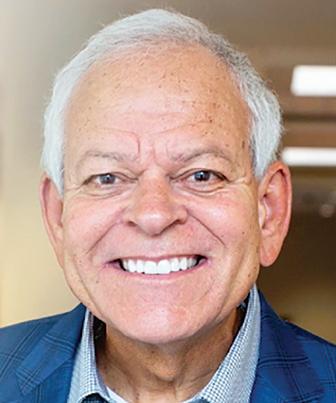

Springfield www.MWAdvance.org March 6 & 7 Join evangelist Johnny Hunt and his team from NAMB for a time of teaching, worship, and prayer to ignite your church’s passion for evangelism. The workshop consists of practical training sessions designed to equip and mobilize your local church. Free to attend, but registration is required at Click on TOUR


18-20 Crowne Plaza,
An opportunity for Baptists from 12 Midwest states to expand their leadership skills and make their churches more effective. Up to 1,200 participants are expected. Reservations were made in November. Contact your local Baptist association. FBC O’Fallon
INSIDE
ILLINOIS BAPTIST STATE ASSOCIATION

EDITOR
Eric Reed
Wake up call

DESIGNER
Kris Kell
SOCIAL MEDIA MANAGER
Lisa Misner
COPY EDITOR
Leah Honnen
COMMUNICATIONS TEAM LEADER
Ben Jones
Published three times each year, Resource provides new information about IBSA ministries, equipping opportunities, and services. This periodical is sent free of charge to church leaders. To request more copies for your leaders, contact Communications@IBSA.org. Resource is also available online at http://resource. IBSA.org.
For questions about subscriptions, articles, or events, contact the IBSA Communications Team at (217) 391-3119 or e-mail Communications@IBSA.org.
POSTMASTER: Resource is owned and published 3 times each year (Jan., May, and Sept.) by the Illinois Baptist State Association, 3085 Stevenson Drive, Springfield, Illinois 62703-4440.
IBSA.org 01 INSIGHT 2 Editor’s note This little light is vital 6 Fran Trascritti Bringing worshipers back 7 Ben Jones What we’ve learned about better communication 8 Carmen Halsey Am I aligned with God’s purpose? 9 Jack Lucas Opportunity is knocking 32 Nathan Carter Revive us? Oh, Lord! DIRECTORY 3 IBSA missionaries and staff 5 Zones, zone consultants, and associations PLANNER 19 Calendar pages January – April 21 Interactive: Outreach Chicken, waffles, and more EQUIPPING 25 Priority 26 Leadership development 28 Missions 29 Ministry partners 30 Special Report 3 kinds of interims Mark Emerson
What the church needs right now SPRING 2022 10 BEFORE TIME RUNS OUT Take the revival challenge Doug Munton 12 BECOME A PRAYING CHURCH 13 HAVE WE LOST OUR CONFIDENCE? A World Series lesson Scott Harris 15 POWER FAILURE What happened to Robby Gallaty 16 REIMAGINING PRAYER And a checklist for topics Phil Miglioratti 17 LONG, LONG ENGAGEMENT What our church’s extended intercession taught me Meredith Flynn
Rejoice always, pray without ceasing, give thanks in all circumstances...
Do not quench the Spirit.
Do not despise prophecies, but test everything; hold fast what is good.
Abstain from every form of evil.
– 1 Thessalonians 5:16-22
This little light is amazing A
pastor-friend tells what happened when he was planting a church more than 40 years ago. In a small Illinois town without an evangelical witness, he called together a few people to launch a new congregation. From the beginning, the core group met in the sanctuary of their rented space on Saturday nights to pray for Sunday services. They prayed specifically for the salvation of lost people in their community.
One woman brought a small oil lamp each week. She would set it on the pulpit and light the flame. It burned the whole time they prayed.

During the first year of that church’s existence, the pastor said he felt great power in preaching. More important, over two dozen people came to faith in Jesus and were baptized into the new fellowship.
Then, it stopped.
The Saturday night prayer gatherings ended. The woman extinguished her little lamp and moved on.
“What happened?” I asked.
“We elected deacons,” he replied.
There was some silence as those of us hearing his story tried to process it. He shared a little more. The new church worked on its organization, saw a need for leaders, and elected some. Somehow, the pastor said, their need for the Lord was diminished as they set up systems and lead teams. And the evangelistic move of the Spirit subsided.
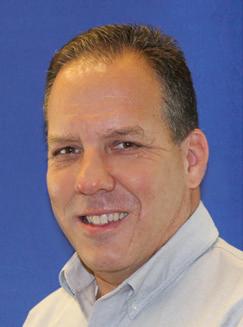
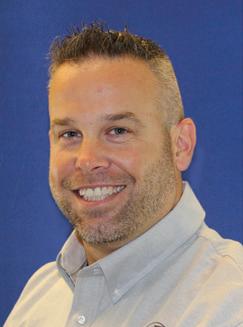

“So, I’m not saying we shouldn’t elect deacons,” he told the leaders team at the church where we both are now members, “but we have to be careful that we don’t rely on anything other than the Holy Spirit.”
In other words, don’t quench the Spirit.
At the time, we were studying the chapter on the Holy Spirit in Dane Ortlund’s


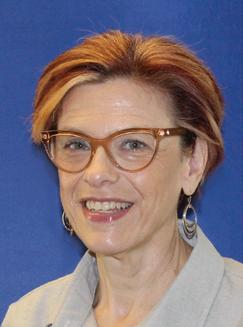
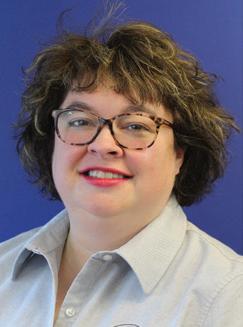

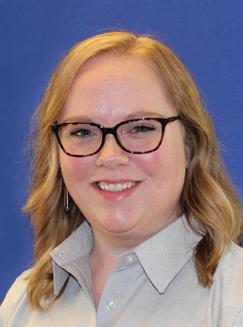



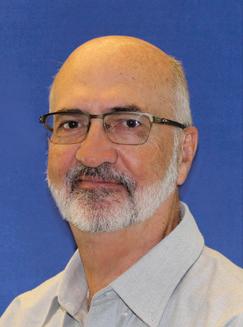
devotional theology, Gentle and Lowly (Crossway 2020). Our brother, with his true story, had illustrated what Ortlund said the Spirit does among believers: he gives them the heart of Christ.
“...the Spirit makes the heart of Christ real to us: not just heard, but seen; not just seen, but felt; not just felt, but enjoyed. The Spirit takes what we read in the Bible and believe on paper about Jesus’s heart and moves it from theory to reality, from doctrine to experience.”
And the heart of Christ is that lost people will be saved. “For the Son of Man came to seek and to save the lost” (Luke 19:10).
So why is it so hard for our churches to be alert to that—and stay focused on it?
And how is it that even when they are, they can still drift from the Spirit’s activity?
Paul warned the Thessalonian church that it was possible to shut down the work of the Spirit. His admonition is wedged between what we could frame as a list of do’s (pray, rejoice, give thanks) and don’ts (despise prophecies, fail to test, engage in evil).
“Do not quench the Spirit” is the turning point. We may readily pray, rejoice, and give thanks, but when those things fall off and the Spirit’s flame is dampened, we can be guaranteed to withdraw from the harder work of discerning godly teachings, testing their origins, and holding only to the good.
Being ready for revival is hard work. It doesn’t just happen. It requires plowing of spiritual ground and unearthing of sin. It may require giving up our Saturday nights to light a lamp and seek the heart of Christ.
Can we expect the Spirit to show up if we don’t?
02 RESOURCE SPRING 2022 DIRECTORY IBSA IBSA.org 03
Team Nate Adams Executive Director (217) 391-3108 Operations Team Jeff Deasy Operations Team Leader (217) 391-3104 Carole Doom Administrative Coordinator (217) 391-3113 Drew Heironimus Information & Technology Services Director (217) 391-3112 Kendra Jackson Bookkeeper (217) 391-3111 Ashley Parsons Accountant (217) 391-3106 Communications Team Leah Honnen Administrative Assistant (217) 391-3127 Kris Kell Production Manager (217) 391-3115 Lisa Misner Social Media & Public Policy Manager (217) 391-3119
Executive
Barb Troeger Executive Assistant (217) 391-3107 Mark Emerson Associate Executive Director (217) 391-3136 Ben Jones Communications Team Leader (217) 391-3140
Eric Reed is editor of IBSA media.
Health Team
Growth Team
(217) 391-3122
(217) 391-3128
Zone Consultants
IBSA Zones 1-10
Fran Trascritti Growth Team Leader (217) 391-3142
Linda Darden Ministry Assistant (217) 391-3137

Aubrey Krol Ministry Assistant (217) 391-3138
Bryan Price Zone 1 (630) 908-0853
Joe Gardner Zone 5 (309) 369-1403

Cliff Woodman Zone 6 (618) 946-5720
(217) 391-3135
Mission Team
Scott Harris Mission Team Leader (217) 391-3139
Kevin Jones Church Planting Director (217) 391-3123
Butch Porter Disaster Relief (618) 499-2215
Jorge Melendez CP – Catalyst (630) 710-3106
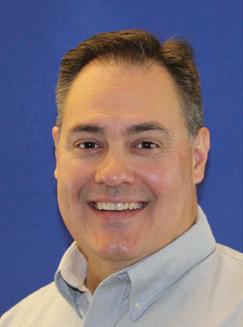



Roger Marshall Zone 7 (217) 259-9665
Ashby Tillery Zone 10 (618) 946-9402
For Zones not pictured here, contact Growth Team Leader
Fran Trascritti (217)-391-3142
FranTrascritti@IBSA.org
To contact IBSA staff by email, write to the person’s full name (no spaces) @IBSA.org

For example: LisaMisner@IBSA.org
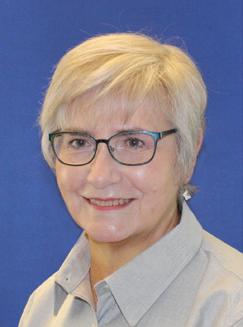

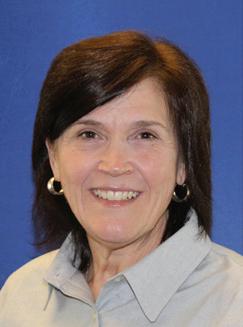
IBSA Camps
Local Associations
ANTIOCH (618) 695-2762
BAY CREEK (217) 222-8867
BIG SALINE (618) 841-9064
CENTRAL (217) 330-7593
CHICAGO METRO (773) 278-4400
CLEAR CREEK (618) 833-4481
EAST CENTRAL (217) 586-5599
FOX VALLEY (573) 579-8143
FRANKLIN (618) 439-3742
GATEWAY (618) 254-3953
GOSHEN TRAIL (618) 839-2981
Ken Wilson CP – Catalyst Central, Southern Regions (618) 697-1036


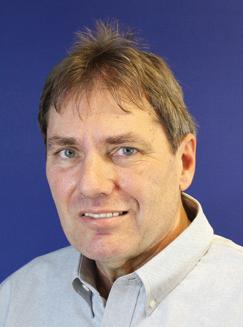
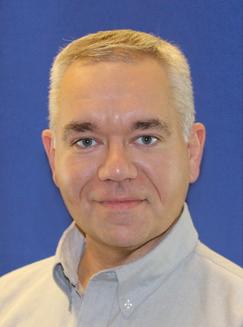
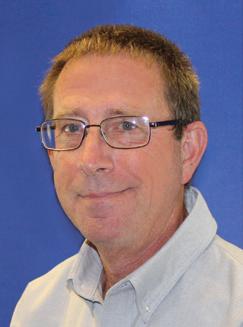

John Yi CP –
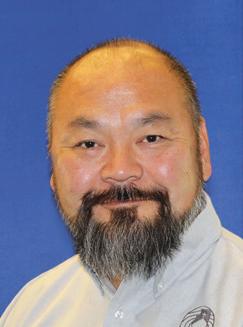
Northeast Region (312) 608-0349
Kim Ayers Ministry Assistant (217) 391-3101
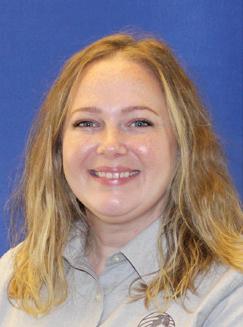
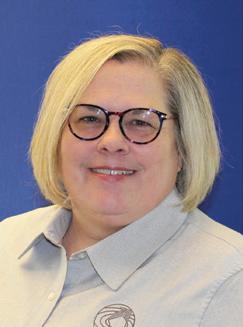
Brock Vandever Manager Lake Sallateeska Baptist Camp (618) 318-9424
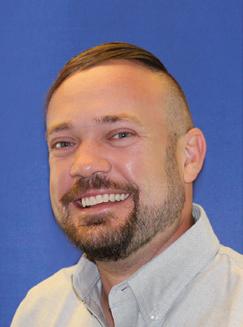
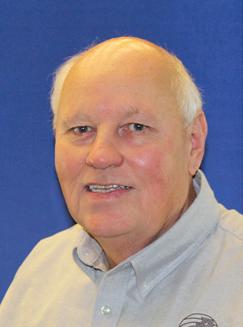
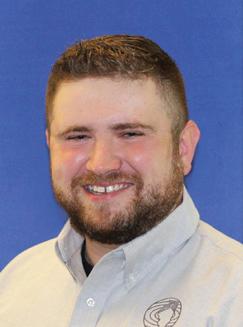

Jacob Kimbrough Manager Streator Baptist Camp (815) 992-5947
GREATER WABASH (618) 847-3041
HEARTLAND NETWORK (217) 529-3429
KASKASKIA (618) 227-0001

LAKE COUNTY (847) 336-3960
LOUISVILLE (618) 283-0842
MACOUPIN (217) 854-8279
METRO EAST (618) 624-4444
METRO PEORIA (309) 369-1403
NINE MILE (618) 615-9095
NORTH CENTRAL (773) 354-4754
OLNEY (618) 392-7001
PALESTINE (618) 569-3189
QUAD CITIES (309) 221-4143
REHOBOTH (618) 283-0842
SALEM SOUTH (618) 242-7862
SALINE (618) 252-1440
SANDY CREEK (217) 882-2231
SINNISSIPPI (815) 631-4182
THREE RIVERS (815) 725-7361
UNION (618) 524-9738
WEST CENTRAL (309) 351-5499
WESTFIELD (217) 549-8690
WILLIAMSON (618) 993-6069
04 RESOURCE SPRING 2022 DIRECTORY IBSA.org 05 DIRECTORY
Carmen Halsey Leadership Development Director (217) 391-3143
Jack Lucas Leadership Development Director
Tammy Butler Ministry Assistant (217) 391-3124
Tammy Ratsch Ministry Assistant
Catalyst
Scott Foshie Church Health Director
Let’s get worshipers back
ovid has come. People have left. Attendance is down. So how do we get them back?
This is one of the most common questions asked by church leaders as we look forward to 2022 and beyond. And the question behind the question: Is the current attendance a new normal for the church?
For a while, probably. But here are a few general observations, both from the latest research and from hearing from leaders while consulting throughout the state:
• Worship attendance is down. Lifeway Research reports that the average church is at 63% of their pre-Covid attendance.
• Giving is close to or above budget.
• Bible study group attendance is much lower than pre-covid.
• Ministry to the local community is well received by those accepting help.
Let me argue that all of this is encouraging. We can appreciate the fact that we’re not alone. It’s great news that we still have a core group of members actively attending, serving, and giving to the mission of the church. Praise God for those loving, serving saints!
We have a way to grow our leaders. One way to start is to launch our Bible study groups ministry then help them again become a strong part of the church. After all, whether the groups meet on campus or off campus, a robust groups ministry provides structure, trains leaders, promotes intimacy, and deepens spiritual growth.
Even more, Bible study groups that operate with a
Better connections
team structure is the wisest approach. Several people within the group can become involved in important tasks, both in growing each other and growing the number in the group. This helps develop people as they grow, serve, and share their faith.
We can reintroduce our church to our community. Since ministry efforts (such as food distribution) have been well received, we have opportunity to reshape and reintroduce our churches to communities who need Jesus!
August 2021 attendance as a percentage of January 2020 attendance
It also means that we can rethink what membership in a church means: that every member is not just a minister, but even more, every member is a missionary. In other words, our core people, the faithful ones who are with us, can be on mission to reach people in the local community with the gospel as we come out of Covid.
We can invite our neighbors. Research indicates that people still trust their neighbors, and Lifeway reports 51% of them said they would come to church if their neighbor invited them. Our core group of church members can and should invite friends, relatives, associates, and neighbors to church.
When we not only train our people to share their faith, but also inspire them to do the simple things like inviting friends to church, we can see a gospel movement happen as lives are changed forever.
Andy Stanley says in the church, the best communicator usually gets to be the leader. But that doesn’t mean the preacher is always the best communicator in other formats outside the pulpit, or that those of us who preach have nothing to learn about becoming more effective communicators.
In fact, what our churches experienced during the pandemic pushed us into lots of opportunities to learn and grow as communicators. So, what did we learn?
This question likely brings to mind Zoom calls, Facebook Live, YouTube, or Instagram. Pastors certainly learned a lot about technology, but let’s focus on what that experience can teach us about communication.
With the church scattered during the pandemic, we learned that the right digital communication strategy allows us to reach our communities no matter their location, no matter the time of day or the day of the week. But just because we’re saying it doesn’t mean they’re receiving it.
Between the pastor and his people, or between the church and its community, there is a message and a method. What do people need? What do they want? How do they want to receive it?
The first two questions sound like they are about content, and the last one about connection. But I think all three are about connection. The digital natives of millennials and Generation Z view online as a primary way to connect rather than just receive one-way communication. But many of our church members over age 40 discovered they like to connect this way, too.
What do they need? People need more than information. They need transformation. They need to connect with truth, relationally. Times and dates can be delivered without emotion or personality, and people will be informed. But if the emails and posts from the church are never more than a billboard of facts, then people will quickly tune out.
Use e-mail or social media posts from a church account
to keep people informed, but use a person to deliver truth that transforms. Brief live video devotions, sermon clips of 1-3 minutes, or focused articles from the pastor all deliver lifechanging truth in a way that connects through a person. God has always delivered truth through people. What do they want? People want authenticity. They trust people that they feel like they know. More than polish, they want the real personality.
During the pandemic some of my pastor friends regularly did live evening devotions on Facebook from their homes. Sometimes the wife or kids made “guest appearances,” scheduled and unscheduled. I have another friend who takes prayer requests in the chat stream. He is connecting with people, and they feel heard, known, and loved. It feels a little like life-on-life, online. How do they want to receive it? This may be the hardest part. Not everyone wants to connect with us on Facebook. Not everyone wants to receive a text message checking on them. This becomes especially true when we look at age segments within the church or community. A message intended to connect with students might be much more successful on Instagram or TikTok. Our oldest members may want a phone call or newsletter in the mail. Each church has segments that want to receive communication and connection through different methods.
So, what is the experience of the past two years teaching us about communication for each particular church? What are two or three strategic changes that would increase the level of connection between the leader, the church, and the community?
BEN JONES is IBSA’s Communications Team Leader. BenJones@IBSA.org


06 RESOURCE SPRING 2022 IBSA.org 07
C Less than 30% 4% 9% 35% 30% 13% 9% 30% to less than 50% 50% to less than 70% 70% to less than 90% 90% to 100% More than 100%
Lifewayresearch.com
INSIGHT
Putting Covid’s communication lessons to work
INSIGHT
FRAN TRASCRITTI is IBSA’s Growth Team Leader. FranTrascritti@IBSA.org
Simple actions can make a big difference
Fueling the ministry Realigning with
God’s purpose
ately
I’ve been reading Priscilla Shirer’s study, Elijah

In his showdown with the prophets of Baal, Elijah proved who was truly God, because only God could light the sacrifice. Yet so many times, we go to the altar, bring the sacrifice, and light the fire. Then the fire burns off quickly because it was never of God.
Many times, God calls us to sacrifice the very things we cling to. Those things that we don’t want to give to God–that schedule, that precious event I created, or my pride in its success. They may not be inherent sins, but they also may not be holy.
Lighting the sacrifice
What does it mean for God’s servant to be on the altar? In her study on Elijah, Priscilla Shirer points to four things:
1. I am the sacrifice.
2. Only God can bring the fire.
3. When we’re burning, somebody else sees. It impacts their life.
4. When God brings the fire, I have sustainability.
We cannot accept using holy things for unholy purposes. Those ideas probably served a higher purpose at one time, but do they still? Is God still trying to do that through our church and in our context?
So, let’s consider how we sacrifice ourselves and the things we have allowed to become sacred to us to God’s purpose for our ministry.
Remain in God. Many of us are distracted. We often point to big things, saying this is what ministry
Prepare now
looks like: a platform, a book, a following. But ministry is simply putting ourselves on the altar every day by abiding in God’s presence. Study the Bible. Pray. Submit to God’s will. All the spiritual disciplines apply. We need to be vines connected to the branch every day if our purpose is to serve him.
Ask God to reveal himself to you. Similar to the ketchup bottle that waits in the fridge to be the dip for our tots, we should be waiting to be used by God. When he’s fueling the purpose, we don’t burn out. There is joy and energy, but there is also a balance that will keep us in check, allowing God to lead the way. Wait for God to fuel the next step, then step out.
Remember, it’s always about people. Whether it’s a task, a catastrophe, or a celebration, ministry is always about the people.
My friend Jennifer lives her life on mission. She approaches every day thinking, “Who is God placing in my life for the next ten minutes? How does he want me to serve in this moment?” Then, if God chooses to use Jennifer in somebody else’s life, Jennifer is not the hero to that person. Instead, they see how God showed up in those ten minutes. Jennifer intentionally allows God to fuel her purpose every day.
Let me offer some encouragement. May we search our hearts, find those things, and allow God to set them alight. Perhaps he will repurpose them. Perhaps they will burn to dust in the light of new ideas. But we will be able to step forward, knowing God is fueling our ministry once again.
Many churches tried to return to their full summer schedule last year, but 2022 may be the year it actually happens. And with the coming of summer also comes your church’s best opportunity to connect with the community. We say it often because it’s true. Vacation Bible School is the open door for evangelism for Illinois Baptist churches. It’s true across the denomination: 25% of all baptisms in the SBC occur because of VBS.
Why not prepare now?
IBSA offers regional clinics for VBS training in the spring, so pastors, directors, and teaching teams can preview the curriculum and plan to train the full team at church. But I would urge you to see this season as time to try something new in two key areas of VBS preparation.
First up: training. If your VBS team has attended a clinic, you’ve already received valuable instruction in this year’s curriculum. But what if you used this month to tackle some of the big issues that are bound to come up when you’re working with children and teens? When I was pastoring a church in southern Illinois, we planned training sessions in April and May to explore critical issues, including:
• Leading children to Christ
• Answering tough questions
• Classroom management
• Practicing appropriate classroom discipline


• Church policies and procedures, such as weather preparedness.
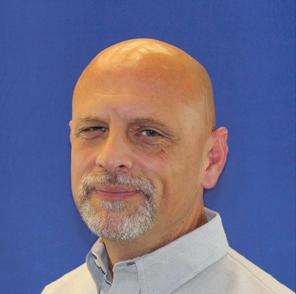
At those training sessions, we’d talk through the specific topic for 90 minutes, then use the remaining time for individual teams to plan together. Additionally, we set aside five consecutive Wednesday evenings leading up to VBS to work through the Bible curriculum together, so that by the time we were communicating biblical truth to kids, we’d already studied it ourselves.
The second area of opportunity is promotion. Now’s the time to think through how you’ll implement tried and true methods, like signage in the church yard, and other promo strategies, like social media posts. You can think even further outside the promo box.
Our southern Illinois church asked a local restaurant if we could advertise VBS on their paper placemats. They said yes. We also partnered with our local schools. Don’t assume schools in your area won’t be interested in helping. Many will. As the school year winds down, the local school may be your best way to let families know VBS is coming soon.
Budget for VBS promotion, and don’t be afraid to try something one year and something else the next. At our church, for every one thing we tried that worked, we tried two that didn’t. The goal is to think creatively and with your community in mind.
Summer is an exciting season of outreach, and VBS is an important component for many of our churches. Try something new this year–and enjoy it!
08 RESOURCE SPRING 2022 IBSA.org 09
L
INSIGHT
CARMEN HALSEY is IBSA’s leadership development director. CarmenHalsey@IBSA.org
INSIGHT
This really is your church’s best outreach opportunity
JACK LUCAS is IBSA’s leadership development director. JackLucas@IBSA.org
WAKE-UP CALL

Perhaps the greatest need of our day is revival. I’m not talking about a series of revival meetings, though that might be needed as well. I’m talking about a genuine revival in the lives of Christians that brings spiritual renewal, vibrancy, and power. What a difference it would make in our day if revival was stirring in individuals and churches and beyond!
I’ve experienced touches of revival in my own life and church, and it whets my appetite for more. Christian leader, wouldn’t you like a fresh touch from God in your own life, your own church, and your own ministry? Wouldn’t you like to see a move of God that changes the hearts of believers and impacts beyond to our culture? Here are three reasons why revival still matters.
We tend to drift from God.
I’m not much of a sailor, but I do know that drifting doesn’t take any special effort at all. It is easy to drift from the shore. And it is easy to drift from God. We get busy, distracted, or preoccupied and drift away. We get rebellious, sinful, or selfish and move away from God. It is easy to do and can happen with us hardly noticing.
Note that we drift from God, not towards God. Getting closer to the Lord involves intentionality. Drifting away from God can happen without any recognition or premeditation at all. In revival, believers come back into right relationship with the Lord. In revival, there is a recognition of our sloth or sin or self-centeredness. We need revival because we tend to forget about what matters most. We tend to lose sight of God’s perspective. We tend to grow stale in our religious activities.
Revival draws us back to a close, intimate relationship with the Lord.
Revival brings new life, joy, effectiveness. Getting right with God is not to our detriment. Though there is sorrow in recognizing our sin, repentance doesn’t result in our loss. Revival involves the recognition of judgment, but it leads us to restoration.
Revival is in our best interest. It leads us to the fruit of
What we needed then, we need now
I was in Lower Manhattan some time ago and there was plenty to see. The Twin Towers were still being rebuilt into One World Trade Center. Battery Park, historic Trinity Church, and Wall Street were all nearby, but there was something else I really wanted to see.
 by Doug Munton
by Doug Munton
Continued on p. 12
Not far from those sites on the corner of Fulton Street, a church once stood. The Old North Dutch Reformed Church was prominent there until the 1850’s. By then it was a shell of its former self. The community was changing and the church was declining. But God got a hold of that church.
The preacher, Jeremiah Lanphier, began a prayer meeting there in the fall of 1857. Only six people showed up for that first meeting. All of them but Lanphier were late. But that prayer meeting grew, and grew, and grew.
God stirred the hearts of those in the prayer meetings. Soon hundreds, then thousands, then tens of thousands began to pray at noon every week, sometimes every day. Revival began. It spread across the young country. So many Christians got right with God that the surrounding communities could not help but notice.
An awakening began among the population. Many came to know the Lord. In fact, one million people professed faith in the Lord Jesus in some public way during the 18 months of the Prayer Revival, as it came to be known. This was at a time when the population of the entire country was only 30 million. Revival swept through the nation.
I stood at the corner where this great revival began a century and a half earlier and prayed.
“God,” I asked, “would you do it again?”
– DM
IBSA.org 11 10 RESOURCE SPRING 2022
The clock is ticking on American culture. God can repair our broken society, but it must start with the church.
MOVING PRAYER – This statue of Jeremiah Lanphier outside the American Bible Society’s building in Manhattan has moved to ABS’s new location in Philadelphia.
the Spirit and the joy and peace that come with walking with the Lord. Though revival can start with pain, it leads to healing and purpose.
Many Christians have come to see the Christian life as drudgery. They see faith as good, but boring. They think of obedience as right, but tedious. Revival corrects that wrong thinking. It reminds us of the joy of our salvation. It gives us new meaning and purpose as we see God’s glory and goodness. Revival leads us to new effectiveness and enthusiasm. Revival is what our soul is longing for!
Revival impacts church, community, culture. One of the reasons we need revival so much is because of the impact revived Christians have on those around them. When churches are revived, they are more effective and focused. The revived church is more committed to evangelism and discipleship and fellowship. But, revival has an impact beyond that.
We often decry the state of our culture, and rightly so. Our culture is increasingly coarse and crude and rebellious to the truth of God. But revival has an impact on the surrounding culture.
Revived Christians and churches can be used by God to bring a spiritual awakening to the culture at large. It can open the eyes of the lost to the realities of sin and the priorities of faith. It can cause the lost world to see their need for the Lord. Often, revival has even resulted in large scale recognition of the need for biblical morality in the culture at large.
Perhaps you have recognized your own need for revival. Will you join me in praying for revival in our lives and churches in this generation? Ask the Lord to send revival to your own life and to change you where you need changing. Be willing to repent of any wrong activity, attitude, or motive.
Let’s pray for a sweeping revival in our generation. Revival still matters! R
DOUG MUNTON is senior pastor of First Baptist Church of O’Fallon. He blogs at dougmunton.com

Lessons from a player who bounced back
by Scott Harris
f you watched the recent World Series between the Atlanta Braves and the Houston Astros, perhaps you noticed a 31-year-old reliever for Atlanta named Tyler Matzek. Many pundits talked about how he was the most dominant reliever in the playoffs this year and a key reason why the Braves won.

This young man was a first round draft pick in 2011 but soon found himself out of the major leagues. Why? He lost confidence in his ability to pitch.
Every church prays, but not every church is truly a praying church. Praying churches have a culture saturated with prayer; prayer has permeated every family, integrated into every ministry, and is penetrating into the community.
Praying churches are led by the Holy Spirit, to pray for people, places, neighborhoods, and nations, from their already-seated-in-heaven position in Christ.
Until the pastor of the church has begun to learn personally how to lead and facilitate prayer corporately, that congregation will remain a church that says prayers. It cannot have a complete culture change without the leadership of the pastor.
1. Identify a Prayer Champion. The Prayer Champion models a praying life but must also provide the biblical content as a foundation for prayer. Church members young and old, new to the faith and veterans of spiritual wars, must understand the Bible’s teachings on the who, what, why, where, when, and how of praying.
2. Name a Prayer Catalyst. Someone with a passion for prayer with a gift for leadership or administration should be appointed to serve alongside of the Prayer Champion. This person will organize the prayer ministry and develop a Prayer Core.
3. Empower the Prayer Core. These are usually intercessors who recognize a call upon their life to pray without ceasing. They must be given affirmation and opportunities to pray and to share spiritual insights from their time in their prayer closets.
4. Transform meetings into Prayer Clusters. Train each ministry leader, class teacher, and group director to integrate prayer into their ongoing ministry or activity. Prayer that invites participation from those in the group or on the committee. Prayer that permeates the Bible study, agenda discussion, or planning session.
5. Partner with a Prayer Coach. Much can be gained from a person who knows how to teach and train but also how to coach the congregation’s leaders into a deeper and an outward focused life of prayer. Discern God’s ongoing direction and correction through the partnership of a Prayer Coach.
– Phil Miglioratti at StrategicRenewal.com
RENEWED CONFIDENCE
It took quite a while, but he finally made it back, simply because he rediscovered his confidence in his ability.
I am afraid the church is experiencing the same issue, the loss of confidence, not in our ability but something far greater: the gospel!
The church will state her utmost confidence in the gospel. “The gospel is what changed our lives and redeemed us,” she will declare. Perhaps, even more passionately she will state, “The gospel changes everything and is the only hope for the world.” Yet, there is a disconnect in our stated confidence in the gospel and our lived-out actions concerning the gospel.
The Apostle Paul stated, “I must tell the good news to everyone. That’s why I am eager to visit all of you in Rome. I am proud of the good news! It is God’s powerful way of saving all people who have faith, whether they are Jews or Gentiles” (Romans 1:15-16, CEV).
Paul’s practice of sharing the gospel is tied to his confidence in its purpose and power. Paul was absolutely convinced that the gospel was the only path and plan that God had to redeem sinful humanity. Paul had complete confidence in the gospel. He knew its power, for the gospel
12 RESOURCE SPRING 2022 IBSA.org 13
I AWAKE
Is my church really a praying church?
had transformed his life. Paul knew if people heard the gospel and responded in repentant faith, it would transform them, too
The essential question is this: Has the church lost her confidence in the gospel?
If we judged by surveys that tell us about how little Christians share their faith with others, we would conclude that those who claim to have been changed by the gospel have lost their confidence in the gospel to change others.
An objective observer would say the church seems to have few successes to celebrate when it comes to the gospel. If we are honest, the church seems to look a lot like the Tyler Matzek of a few years ago, possessing everything necessary to succeed, but not succeeding due to a loss of confidence.
What would happen if the church regained her confidence in the gospel of Jesus Christ? Would it not change our churches? Would it not be evidenced by more believers sharing the gospel?
If Illinois Baptists truly want to see a gospel movement sweep across our state and change our communities, it will require once again having complete confidence in the gospel of Jesus Christ. This will mean there can be no difference between our belief and our practice.
Like Paul, I am confident in the gospel! It is still “the power of God unto salvation.” When our churches are confident of this, we will see what God does among us through his Word and his Spirit.
OUR POWER FAILURE
SCOTT HARRIS is IBSA’s Mission Team Leader and Evangelism Director. ScottHarris@IBSA.org

3
exercises for regaining our confidence in the gospel
Communicate the power of the gospel clearly to our congregations.
Pastors must preach with confidence. We must preach on the life-changing power of the gospel. And we need to remind our churches of what the gospel has done for them and can do for others.
(Ed. Note: on June 6, 2021, a power outage left the congregation at Long Hollow Baptist Church in Hendersonville, Tennessee in the dark at the end of Pastor Robby Gallaty’s sermon. Without screens or instruments, Gallaty was ready to send the people home, until the Spirit intervened. Jesse T. Jackson reported the story at Churchleaders.com, excerpted here.)
As the pastor prepared to say, “Let me pray as we close the service,” Gallaty said something stopped him. Instead, he said, “We are not going to let the enemy get the victory today.” Gallaty said he listened to the Holy Spirit’s prompting and changed course. “What happened next was unreal,” he said.
Because there was no electricity, he began yelling so everyone in the auditorium could hear him. Gallaty invited anyone in the congregation to come forward who needed to be set free from addiction, resentment, bitterness, shame, guilt, porn, drugs, pride, or any other sin that might have a foothold in his or her life.
Confront the disconnect between belief and practice.
It isn’t easy to point out the inconsistency of maintaining belief in the power of the gospel while never sharing it with others. As preachers, we must make sure we confront this in our own lives, as well as challenging our people in this area.
Coach our people in the process of sharing to build confidence in their practice.

As a pastor-coach, we should take seriously the idea that people are fearful to share because they do not feel prepared to share. They need us to coach them. In the new year, our church leaders need to make ongoing evangelism training a normal part of the discipleship process.
 – Scott Harris
– Scott Harris
“There was a palpable presence of God,” Gallaty said, as he knelt to pray. The pastor began weeping uncontrollably as many in the audience came to the altar and wept.
Gallaty shared later that his wife, Kandi, had written a journal entry the day before the power went out about 1 Kings 8:10-11, when God’s glory fell on his people and disrupted the service. Kandi wrote, “Can you image not
being able to minister or do anything because of the Lord’s glory?! You can’t move or sing or form words because all you can do is just be in his presence. Nothing you do would scratch the surface of being sufficient.”
In her journal entry, Kandi had asked, “Lord, may we experience that in our Sunday morning services! All we can do is be still and sit in the awe of your glorious presence. Holy Spirit come!!!” And 24 hours later, the prayer was answered.
The revival started (in December 2020), after Gallaty says he started to deal with personal sins of pride, arrogance, and jealousy after hearing God tell him, “The problem is not with your church, it’s not with your staff; the problem is you.”
After 10 months of dedicated prayer on his front porch, Gallaty says God revealed to him that he was to begin leading spontaneous baptisms. Although he was hesitant at first, he says his obedience to God’s instruction has allowed him to witness 1,235 baptisms (in six months).
14 RESOURCE SPRING 2022 IBSA.org 15
A gospel movement sweeping across our state will require there be no difference between our belief and our practice.
1 2 3 R
Robby Gallaty’s wife prayed for it. And it happened.
I’m convinced prayer births revival and revival births prayer.
Pastor Robby Gallaty (left) assists Dylan, a former Satan worshiper who recently gave his life to Christ, in baptizing his friend Patricia. Her baptism took place Dec. 20, 2020, marking the beginning of a spiritual awakening with more than 1,200 baptisms at Long Hollow Baptist Church. R
– BP Photo
REIMAGINING PRAYER
It can be Scripture-fed, Spirit-led, and wider-spread
by Phil Miglioratti
he Bible was written to change our lives; not increase our knowledge.”
When I first heard this exhortation from professor and author Howard Hendricks, it became foundational to my understanding of how to read the Bible.
I immediately understood that whenever I read or heard Holy Scripture, I could not merely stockpile new information. I was responsible to apply that truth, insight, or exhortation to my life as a follower of Jesus Christ. Later, I realized that the Bible was also written to transform my praying.

Whenever we are hearing, reading, meditating on, or memorizing the Bible, the Holy Spirit longs to transform our mind’s self-conversation into an ongoing conversation
“When he, the Spirit of truth, comes, he will guide you into all the truth. He will not speak on his own; he will speak only what he hears, and he will tell you what is yet to come.”
with Almighty God. That’s why it’s important that I listen, don’t tell.
No longer do I consider prayer as my simply telling God what I need. Now, by listening to the guiding-speaking-telling-revealing of the Spirit of truth, I participate in knowing God’s will.
As we pray, let’s expand our application of the Scripture to these life components by asking the question: How can this Scripture apply to:
Worship: helping me exalt God’s character and attributes?
Discipleship: teaching me to exhibit a life in Christ of obedience and joy?
Stewardship: reminding me to express gratitude and generosity?
Leadership: inspiring me to exceptional service and ministry?
Fellowship: producing an extraordinary “one another” community?
Citizenship: directing me to extend the love of Jesus to my neighbors and community?
Relationship: leading me into authentic relationships in my family and with friends?
Applying Scripture must never stop at a personal application-only level. This limits the length and breadth and depth of the living Word of God. The Holy Spirit’s work—through the written Word of God—is meant to change, empower, and equip us as individuals. But God also designed it to flow from us, his change agents. Each biblical encounter is a call to pray God’s Word into every segment and role of our lives.
This format can serve as a guide for praying even the simplest Scripture passages into our lives. As we read Scripture, we can offer a prayer like this:
• I seek the filling of the Holy Spirit so that I will be led into God’s truth.
• I am eager to know the mind of Christ so that I may do God’s will.
• I want to know the heart of the Father so that I exhibit and proclaim God’s love. R
PROLONGED SEASONS
 by Meredith Flynn
by Meredith Flynn
Two things surprised me when I visited Capitol Hill Baptist Church in Washington, D.C. several years ago. First, there were an unusual number of toddlers in the service, many in strollers parked under the overhang of the horseshoe balcony. Second, the church engaged in corporate prayer several times during the service. The prayers were lengthy, focused, and obviously a key part of their worship.
This was before the pandemic shut down church nurseries around the country, before we all knew what it was like to hear children’s voices throughout the worship service. That Sunday at Capitol Hill Church, the room was largely quiet, even during the extended prayer times marked in the multi-page bulletin I received at the door.
Capitol Hill Church publishes its bulletin each week online, and a recent service included prayers dedicated to praise, confession, and thanks, plus a pastoral prayer. I know from experience those prayers are quiet times of reflection and seeking. They’re more intentional than the worship prayers I grew up with, and I’ve thought about them often since my visit.
Even after a lifetime of church attendance, prayer in worship is often merely a time marker to me. It’s what we do between the “bigger” elements of worship–the sermon, the songs, the Lord’s Supper. It shames me to acknowledge it, but I’ve often been guilty of thinking of prayer as filler. But it’s so much more than that, or should be.
16 RESOURCE SPRING 2022 IBSA.org 17
“T
Why we need more than ‘a word of prayer’
–
PHIL MIGLIORATTI is Chicagoland pastor and Chicago Metro Baptist Association prayer coordinator for many years, now curator of The #ReimagineFORUM @ Pray.Network, a collaboration of prayerfueled leaders.
John 16:13–14
My current church has an extended time of prayer right before the sermon every Sunday morning. Led by one of our elders, the prayer is three-pronged–each week, we pray for a local, a national, and a global need. I have by no means “arrived” when it comes to prayer in worship, but I have noticed that praying consistently with my church in the context of worship has clear benefits:
Prayer in worship quiets a noisy heart. For people like me, this may be the biggest benefit of intentional, extended prayer times in a worship service: they compel me to still myself and quiet my heart. I’m drawn to focus on the words being prayed and to pray myself. At my church, we sing together as a congregation before we enter into the pastoral prayer time. The songs certainly help orient our worship to God, but there’s something different about that moment when the music stops. Corporate prayer helps prepare me to hear from God’s word. It’s a signal that the next phase of worship will require more of my mind and heart.
Prayer in worship rightly positions prayer. When prayer is a consistent part of our weekly worship service, attenders like me are compelled to prioritize it there and in our personal lives. When I think back on my visit to Capitol Hill, my first thought is that it was a church that cared more about true worship than keeping to an order of worship. Churchgoers like me need help remembering that. If we’re not careful, we may forget that prayer is worship.
Even in a worship service, prayer can become the grocery list of requests that feels more like telling God rather than seeking God. But when our congregation focuses more on the act of prayer than the list of prayer, then prayer becomes communion with God. By bringing our praises as well as requests, we offer worship.
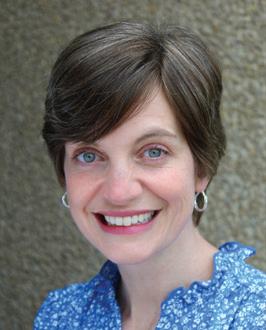
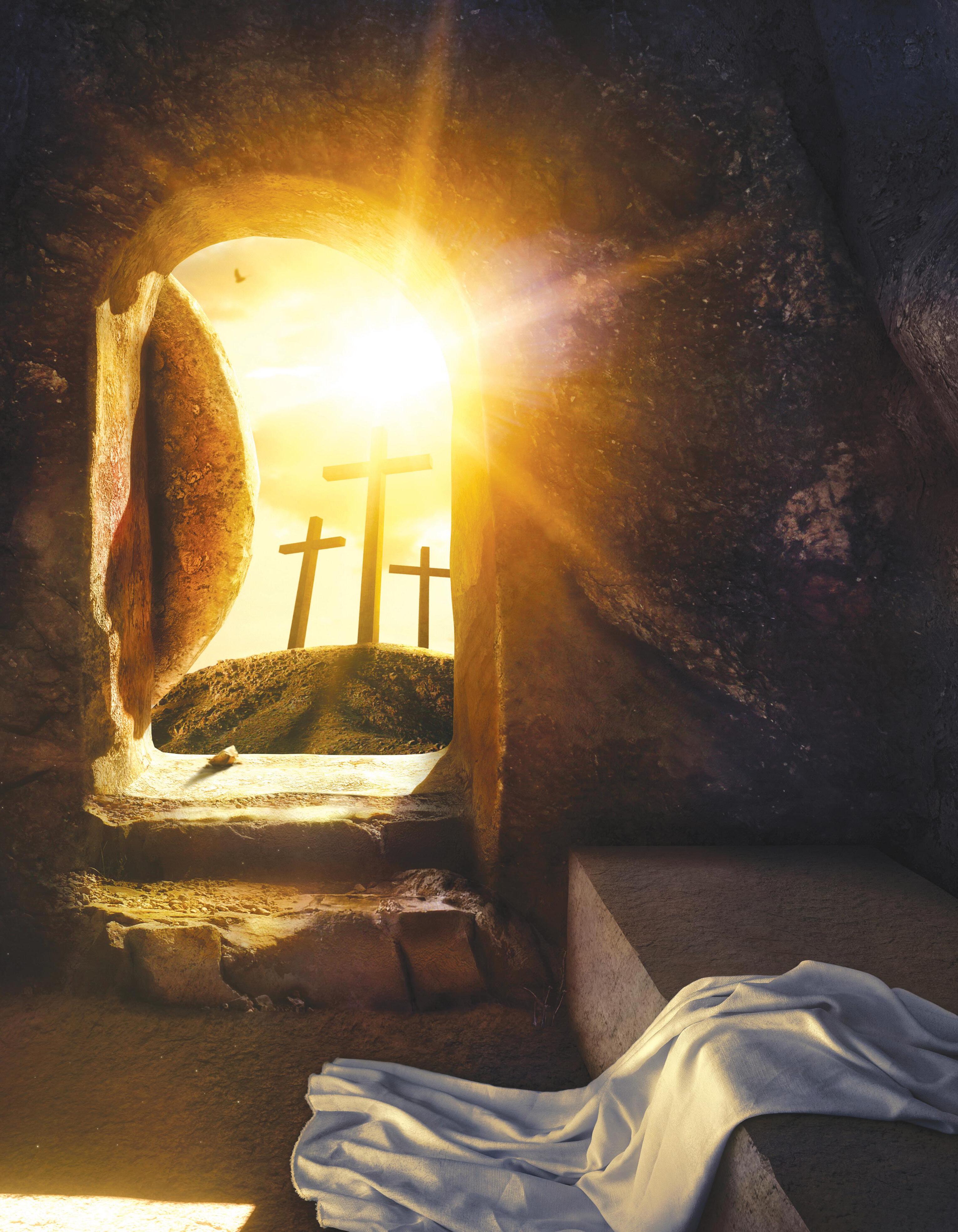
Prayer in worship cultivates an environment of prayer. It’s not unusual to see pairs or small groups of people praying together after our worship service. I used to think that was something only seasoned, senior church members did. But at my church, where I’m squarely in the middle-aged demographic, younger believers are often the
SPRING 2022
ones leading the prayer charge. The church has grown accustomed to praying together in worship, and it spills over easily into regular life.
Prayer in worship unifies the church. Capitol Hill offers many resources on prayer on its 9Marks website, including a Q&A about why churches should pray corporately. One reason: prayer highlights the unity Christians have in Christ. “When we all join in lifting up our hearts to God,” 9Marks says, “we express and experience the covenantal unity that we have as the body of Christ.”
I’ve gone on record as a recovering “community skeptic.” A weekly gathering with believers outside of church with the purpose of developing Christian community wasn’t part of my life until fairly recently, and I’m still adapting. Praying together, in the context of worship and in my weekly community group, keeps me on track and on mission with the believers around me. Praying for the same things strengthens the unity we have in Christ.
Prayer in worship broadens our focus. On a recent Sunday, our prayer time focused on making disciples (local), an IBSA church plant a few hours south of us (national), and a missionary in Southeast Asia (global). It wasn’t the first time we’d prayed for any of those needs. The consistency of a rotating list of people and requests to pray for reminds me God is working in places other than my immediate community.
I may always be tempted to think of prayer in worship as a smaller part of the overall picture. But consistent intercession alongside my local church makes a difference. Praying together invites me into a greater understanding of God’s mission, and more heartfelt participation in it.
Calendar Highlights

IBSA.org 19 18 RESOURCE SPRING 2022
PLANNER
JANUARY 18-20 Midwest Leadership Summit 20 Illinois Leadership Luncheon FEBRUARY 7 Edge Leadership courses 26 Vacation Bible School training MARCH 6-13 Annie Armstrong Easter Offering 12 DiscipleLab 24 iConnect for new pastors APRIL 8-9 Disaster Relief Training 17 Resurrection Sunday 28-29 Chaplaincy Training
R
What happens in the church service has changed what happens in my heart.
MEREDITH FLYNN is a freelance writer, wife, and mother of two. She is active in ministry at Delta Church in Springfield.
JANUARY
2-9 January Bible Study
10 Tax Seminar
Gateway Baptist Association
13 Tax Seminar
IBSA Building, Springfield
16 Sanctity of Human Life Sunday
17 Martin Luther King Jr. Day
IBSA offices closed
18-20 Midwest Leadership Summit
Crowne Plaza, Springfield
20 Illinois Leadership Luncheon
IBSA Building, Springfield
NOTES:
PLAN AHEAD FOR Love and marriage
With Valentine’s Day coming soon, this is a good time to focus on love, marriage, and family life. You can pair nearly-weds or newlyweds with longtime married couples for a mentoring relationship. Plan a teaching series on parenting. Focus on blended families and single parent households for outreach. Use Valentine’s weekend to launch or conclude the celebration.
Identify an area of family ministry for the special focus:
INTERACTIVE: Spring Outreach
Wing Church
A north Georgia church sought ways to connect with younger people who were interested in discussing their faith. With chicken wings as a food fad and their local wings restaurant rising in popularity, the church began advertising “Wing Church” on social media, a conversation-based service that explored faith and worship. The Buffalo-flavored nosh quickly turned into a twice-monthly event that connected with young adults working downtown in their community. If your church sponsored an off-site group discussion, where would people want to gather? What would they want to eat?

– adapted from Wing and a Prayer
No more snow days?
What happens if school goes remote, rather than closing for snow days, but Mom and Dad must go to work? Open the church for Remote Snow Days. Kids can bring their laptops and a sack lunch. The church can provide classroom space, supervision from properly screened workers, and some fun activities with a Bible lesson. Plan ahead so parents in the church and community will know about the Snow Days option.
Spring Break VBS
Remember how much fun our summertime archeological DIG was? Why not repeat it at Spring Break? The lessons are true. The activities are still fun. And the workers are already prepared. A springtime VBS for a few days in March could be just the pick-me-up your children’s ministry needs right now.
Name three events, classes, or sermons:
Pancake Breakfast (or supper)
Who can plan the events?
A tradition in England is serving pancakes for supper on Shrove Tuesday, the day before Ash Wednesday. It’s a big hit with churches there. Another version of this is a Pancake Breakfast on Easter Sunday. A Baptist church in Elgin has a Pancake Breakfast before worship on Easter morning. It’s a big hit there, too, drawing lots of families from the community. What would be the popular food in your community? Biscuits and gravy? Chicken and waffles?
– adapted from Out of the Box Easter Outreach Ideas
How will we make this season a time for outreach?

Jesus loves...carnations?
An Ottawa, Kansas church adapted the traditional flowers for Valentine’s Day into an evangelistic project. People who were initially hesitant to answer the door were quickly disarmed when they saw a smile and a carnation, and heard, “Happy Valentine’s Day! Jesus loves you!” Church members distributed flowers to the faculty and staff at the elementary school next door and to shoppers exiting a discount store.
– adapted from God’s Missionary Church
Passion for art
Ask local artists or artists in your church to create art inspired by the life, death, and resurrection of Jesus Christ. Set up an art gallery at your church. Invite the community to view the creations and interact with the artists to hear their stories and perspectives. This can convey the emotion of the Passion story in new and different ways.
– adapted from Out of the Box Easter Outreach Ideas
Carry the Cross
In Wilson, N.C., a church turned its Good Friday event into a community wide service. Winstead UMC had a piece property where they planned to expand one day. At first, they placed a cross on the property ahead of Easter. Eventually, the church invited 10 other churches to join in, first processing 10 miles through town before arriving at the site. They wanted to “do something tangible and memorable to witness to Jesus on Easter weekend,” the pastor said.
– adapted from Out of the Box Easter Outreach Ideas

20 RESOURCE SPRING 2022 IBSA.org 21 PLANNER
FEBRUARY
6 George Liele Church Planting, Evangelism, and Missions Sunday
7 Edge Online Leadership courses begin
18-19 D-Now Weekend Streator Baptist Camp
20 Focus on WMU Sunday
21 Presidents’ Day
IBSA offices closed
26 VBS Training
Chatham
27 Racial Reconciliation Sunday
NOTES:
PLAN AHEAD FOR
PLAN AHEAD FOR The Easter Season MARCH
5 VBS Training
Carterville
6-7 Who’s Your One Tour with Johnny Hunt
FBC O’Fallon
6-13 North American Missions Prayer
Emphasis and Annie Armstrong Easter Offering
The Week of Prayer is March 6-13. The focus is North American Missions. One of the planters featured in the prayer guide is Michael Byrd of St. Louis, who preached at the 2021 IBSA Pastors Conference.
This is a good time to focus on people groups in North America, and in the county where you live. The nations are at our doorstep. You might ask someone to do a study of unreached people nearby and present it to the church.
Who can organize our Annie Armstrong activities?
12 VBS Training Logan Street, Mt. Vernon
12 DiscipleLab IBSA Building
19 VBS Training Dixon
24 iConnect for new pastors IBSA Building
27 Church Planting Emphasis Sunday

The weeks before and after Easter are prime opportunities for outreach. For Christians, the season begins on March 2. This is an excellent time to focus on the Cross, personal devotion, and sharing the gospel. Then the community becomes the focus for Palm Sunday (April 10), Resurrection Sunday (April 17), and the weeks afterward. Plan now for effective Easter season outreach.
How can we highlight unreached people in our area and in Illinois in March?

NOTES:
How can we explore new mission opportunities for our church in Illinois and North America?

What will be our focus for church members?
Who can lead a devotional or teaching series?
What can we post online to aid people with Bible study?
Name two special events to make our Easter celebrations outwardly focused, and people or groups to lead them:
IBSA.org 23 22 RESOURCE SPRING 2022 PLANNER
PLAN AHEAD FOR Vacation Bible School APRIL

8-9 Disaster Relief Training Central
10 Personal Evangelism Commitment Day
15 Good Friday
IBSA offices closed

17 Easter
24 Baptism Sunday
28-29 Chaplaincy Training (CISM offered)
IBSA Building, Springfield
29-30 Priority Women’s Conference

Bank of Springfield Center
NOTES:
Training clinics for VBS started in February. Now is the time to complete plans for the annual summer outreach event. Think of VBS as an evangelism event for the community, with salvations and baptisms as the goal.
Our dates:
VBS Director:
Outreach/invitation leader:
New teachers:
Organizers for snacks, crafts, and music:
priority women’s conference
April 29-30 • BOS Center, Springfield
Teacher training nights:
Outreach event and dates:
Keynote speakers are Richard Blackaby, Kim Hardy, and Kimberly Sowell. Cost is $55 per person. Hosting in remote locations is available for $50 per church. For hotel accomodations and to register go to IBSA.org/Priority2022
24 RESOURCE SPRING 2022 IBSA.org 25
SPRING 2022 PLANNER
EQUIPPING
Plan a leadership retreat
In addition to multiple weeks of camp sessions for kids and teens each summer, IBSA’s two camp facilities are available for churches and groups to rent for recreation, retreats, training events, and discipleship gatherings of all kinds. Each situated on beautiful wooded acreage, the camps offer meeting and worship space, dining facilities, lodging, and more. Contact the camp managers for booking information.
Midwest Leadership Summit
1/18-20 Crowne Plaza, Springfield
An opportunity for Baptists from 12 Midwest states to expand their leadership skills and make their churches more effective. Up to 1,200 participants are expected. Reservations were made in November. Contact your local Baptist association.

Edge Training Online Courses
2/7 Spring semester begins
IBSA’s Edge Training will help you become a sharper leader right where you live and serve. Multi-week training courses are instructor led, fully online, and highly interactive. Each class is designed to deliver challenging, relevant teaching with a focus on practical application for ministry. See website for cost.
www.IBSA.org/ibsa-online-courses
(217) 391-3142 • FranTrascritti@IBSA.org
Illinois Leadership Luncheon
1/20 IBSA Building, Springfield
Illinois Baptists attending the Midwest Leadership Summit will follow up with this luncheon and training event. Contact your local Baptist association.
VBS Training Clinics
2/26 Chatham Baptist Church
3/12 Logan Street, Mt. Vernon
3/19 Dixon
Participate in our VBS Clinics to learn more about the LifeWay 2022 VBS theme “Spark Studios,” get great ideas, and be inspired. Training will be offered for several age groups. Registration 8 a.m.; event
8:30 a.m. – noon
www.IBSA.org/kids
(217) 391-3135 • JackLucas@IBSA.org
Tax Seminar
3/24 IBSA Building
Pastors new to Illinois and pastors who want to reconnect: Learn how resources of the state convention can help your church be more effective at reaching your community and the world.


(217) 391-3138 • AubreyKrol@IBSA.org
1/10 Gateway Baptist Association, Edwardsville
1/13 IBSA Building, Springfield and online
Provides valuable tax info for current and retired ministers, treasurers, and other church leaders. Attend in person or online.
www.IBSA.org/taxseminar
(217) 391-3124
• TammyButler@IBSA.org
3/12 IBSA Building, Springfield
A workshop designed for the church pastor plus one discipleship-oriented church leader (Sunday school director, minister of education, etc.) to learn, discuss, and develop a workable, practical plan for disciplemaking in their church. Free to IBSA churches.

www.IBSA.org/disciplelab • TammyButler@IBSA.org
Ignite Conference
4/3-4 Logan Street Baptist Church, Mt. Vernon
The ignite Conference is going regional in 2022. The Mount Vernon Ignite will start on Sunday evening with a powerful and inspiring worship service and continue Monday with great encouragement and instruction. This conference will equip and encourage pastors and leaders to be a part of a gospel movement across Illinois.
www.IBSA.org/ignite • (217) 391-3101
ScottHarris@IBSA.org
Brock Vandever, Manager LAKE SALLATEESKA
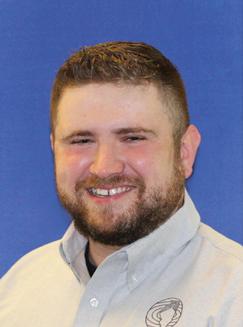
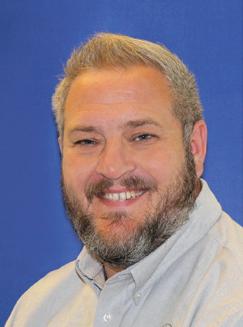
(618) 336-5272
BrockVandever@IBSA.org
Jacob Kimbrough, Manager STREATOR
(815) 992-5947
JacobKimbrough@IBSA.org
IBSA Lending Library

This resource is available to all IBSA churches at no cost with over 400 titles available on DVD. It offers a broad range of Bible studies and topics for women, men, youth, and kids. Study lengths vary. Some of the most popular titles include:
• Better: A Study of Hebrews by Jen Wilkin
• Elijah by Priscilla Shirer
• U-Turns by Tony Evans
• Settle for Nothing Less: Engaging Kids in a Lifetime of Faith by Jana Magruder
• Take Courage by Jennifer Rothschild
A list of study titles is available at IBSA.org/lendinglibrary. For more information, call (217) 391-3128 or e-mail CarmenHalsey@IBSA.org.
26 RESOURCE SPRING 2022 IBSA.org 27
LEADERSHIP DEVELOPMENT
LEADERSHIP DEVELOPMENT
Streator Baptist Camp
Focus on WMU Sunday
2/20
Illinois Baptist Woman’s Missionary Union (WMU) touches lives for Christ throughout Illinois, across the United States and into the world. From WMU activities in their local churches, to marketplace ministry projects in Chicago, to missions work with Muslim women in France, Illinois WMU is sharing the gospel.
www.IBSA.org/Women
(217) 391-3143 • CarmenHalsey@IBSA.org
Disaster Relief Training
4/8-9 Central Region
Disaster Relief Training

Weekends involve a Friday evening and Saturday daytime schedule. The Chaplaincy class begins Friday afternoon at 1 p.m. New volunteers should attend the Friday evening Introduction to Disaster Relief 101 class and then take specialty classes on Saturday. New volunteers are also required to take Introduction to Disaster Relief 101 Friday evening and Saturday afternoon.
www.IBSA.org/DR
(217) 391-3101 • KimAyers@IBSA.org
CISM Chaplaincy Conference
4/28-29 IBSA Building, Springfield
Chaplaincy provides a unique platform by which a church can offer the gospel to those who are suffering. The Critical Incident Stress Management course trains participants to handle significantly stressful events. Participants are certified to provide immediate chaplain support in crisis events. This will provide churches a unique ministry platform in their community.


www.IBSA.org/DR • (217) 391-3126
Annie Armstrong Easter Offering & Week of Prayer for North American Missions
3/6-13
This special missions offering supports SBC missionaries serving in North America. The Week of Prayer guide features select missionaries and information about their ministries.
www.AnnieArmstrong.com
(217) 391-3101 • KimAyers@IBSA.org
Cooperative Program Sunday
4/24 Throughout the SBC
The world’s most effective system for missions giving is the Cooperative Program (CP) of the Southern Baptist Convention. Through offerings from all our churches, the CP produces around $190 million for missions work every year. Each time you give to your church, a small portion (whatever percentage your church chooses) goes through CP to the mission field, starting in Illinois then reaching to the whole world.
www.IBSA.org/CP
(217) 391-3119 • LisaMisner@IBSA.org
Missions Affinity Group Prayer Guides

There are more than 3 billion people in the world who have never heard about Jesus. Together through prayer we can proclaim that the name of Jesus among every tribe, people, and language. As Illinois Baptists, we can ask God to break our heart for what breaks his.
www.IBSA.org/missions-affinitynetwork-prayer-guides


(217) 391-3101 • KimAyers@IBSA.org
Ken Steward

Associate Director (217) 685-0222


Sheila Jessen Office Coordinator (217) 391-3116

Doug.Morrow@BaptistFoundationil.org

Ken.Steward@BaptistFoundationil.org
Sheila.Jessen@baptistfoundationil.org
BaptistFoundationil.org

28 RESOURCE SPRING 2022 IBSA.org 29 MISSIONS GraceHaven pregnancy center in Mt. Vernon is a new ministry of BCHFS. The clinic helps pregnant women make important life-saving decisions. PARTNERS Doug Morrow Executive Director (217) 391-3102 www.BCHFS.com E-mail bchfs@bchfs.com 949 County Rd. 1300 N. Carmi, IL 62821 • (618) 382-4164 Baptist Foundation of Illinois BFI helps churches and individuals make important financial decisions with investment counseling, and redeployment of legacy church assets. Call us for more information. Baptist Children’s Home and Family Services BrotherhoodMutual.net/mpp.htm Your IBSA Ministry Partner Churches often face legal issues, so they need to be prepared. When an issue arises, churches need trusted counsel. Enter code IBSA20 to receive a reduced annual membership of $200, which is 20% off the regular price. We can help your church prepare for these changes. ADFChurchAlliance.org/culture OUR CULTURE IS CHANGING Your Preferred Ministry Insurance Provider Join the thousands of churches that trust Brotherhood Mutual. Request your free quote today. Local, churchaffiliated agents Ministry specific products 98% customer satisfaction
PASTORING BETWEEN PASTORS
3 views of interim leadership
by Mark Emerson
It has been a joy for me to serve several of our churches as an interim pastor. I remember one church member sharing with me his perspective of transitional leadership, “It must be great being an interim pastor, you can preach what you want without the fear of being fired.” Obviously, that is not an accurate view.
Tony Wolfe offers a more biblical picture in his book, “While in Crete.” The book is based on Titus 1:5. “The reason I left you in Crete was to set right what was left undone and, as I directed you, to appoint elders in every town.”

Paul’s interim strategy to Titus was two-fold: set right what was left undone, and appoint new leadership. Wolfe shares, “The interim pastor must be relentlessly hopeful on behalf of the pastorless church. And he must master the art of casting that hope forward from the leadership chair.”
A recent study showed that nearly 10% of Illinois Baptist churches are in a leadership transition. This has been the pattern for the past few years in Illinois, where we have identified ten percent of pastors having transitioned each year for the past four years.
Even though this is a surprising statistic, it is important to note that historically, pastoral tenure in IBSA churches is longer than the national average.
With about 90 IBSA churches searching for a pastor at any given time, the need for transitional leadership is magnified. A few years ago, when IBSA began to focus more intently on tracking our churches in transition, we initially referred to the collection as the “Pastorless Church List.”
Former IBSA Zone Consultant Steve Neil was quick to push back that many of these churches are not actually “pastorless.” Some were being led by transitional pastors that shepherd the churches with the similar gifts as permanent leaders, but with a special purpose and calling. This is a good reminder. Interim leadership strategies are as unique as our churches, and each is led by a pastor with a unique purpose. There are unique leaders and unique models.
There are basically three types of interims that IBSA churches tend to embrace during pastoral transition. Each model has advantages and disadvantages. It is important that church leaders prayerfully consider each model to determine which fits best in their context.
Pulpit supply model
In this model the church feels comfortable that they can provide for the daily ministry needs of the church, except the preaching responsibilities. Guest speakers are enlisted for a single Sunday or a sequence of Sundays. An advantage of this model is the variety of the speakers. The cost to the church is also comparatively low. Disadvantages include a lack of stability and consistency each week.
Both church members and guests may not easily identify who is leading the church during a time where the church needs strong leadership. Churches are also tempted to use this model as a “parade of preachers,” as they seek to find their next leader in the preacher they like best.
Short-term interim model
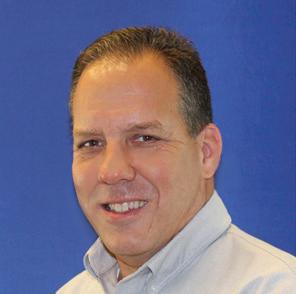
This is a common strategy used by IBSA churches. In this model the church and interim pastor clearly identify roles, time frame, and goals for the interim period. For example, the church may enlist the help of an interim pastor for six months. He may be asked to preach on Sunday, lead Wednesday night Bible study, and share a few ministry responsibilities such as weddings and funerals. Some short-term goals may also be identified that fit the skill set of the interim pastor. The advantages of this model are the consistency and stability of leadership. Disadvantages arise when the church does not clearly identify roles and hours needed of their interim leader.
This model also can promote the awkwardness of the interim pastor wanting to be considered for the permanent role or church members seeking to enlist the interim pastor to the full-time role. It is common to agree with the interim pastor before he is called that he will not be considered as a permanent pastor candidate.

Intentional interim model
The name may be a little misleading since all these models are intentional. The intentionality here is defined by a longer process that could be two years or more. This type of interim expands the focus from keeping the church going during a pastor search to a full church revitalization process.
Resource
Tony Wolfe’s book
“While in Crete” is a helpful guide for interim pastors. The title is found in Titus 1:5; “The reason I left you in Crete was to set right what was left undone and, as I directed you, to appoint elders in every town.”
Wolfe describes the interim pastor as a leader who offers hope to a church in a vulnerable time. He says, “The interim pastor must be relentlessly hopeful on behalf of the pastorless church. And he must master the art of casting that hope forward from the leadership chair.”
The advantage with this model, especially in cases where the former pastor has had a long tenure (over 10 years), is that a longer interim can help prepare the church for the next pastor. A disadvantage to this model is the lack of trained leaders who have the ability and availability to lead a church through these longer processes. There are variations of these models that are less common. A church may enlist a current staff member to lead the pastoral duties during a transition, or a church may recruit two or more leaders to serve simultaneously in the interim period. These formats also have their own advantages and disadvantages.
IBSA is willing to meet personally with your church to help you prayerfully decide which interim strategy may best fit your church’s needs. R
30 RESOURCE SPRING 2022 IBSA.org 31
SPECIAL REPORT
MARK EMERSON is IBSA’s Associate Executive Director. MarkEmerson@IBSA.org
LEADER LIFE
Inventory time
Read Psalm 85
Notice the three sections: looking back (vv. 1-3), looking up (vv. 4-7), and looking forward (vv. 8-13). As you do, conduct a revival inventory both for yourself personally and your church. Invite members of the leadership team to do the same.
The pattern all throughout Israel’s history is one of wandering away from God. Israel was repeatedly unfaithful, but God was perpetually faithful. He had a track record of bringing times of refreshing when he was favorable to his land and restored the fortunes of his people. And so we see this psalm starting out recounting those past movements of God, previous revivals.
Then it turns to a prayer: Lord, do it again please.
Identify a season of wandering away. What was pulling you away from God?
What worldly standards influenced your ministry?
When there has been revival, how did it happen?

Revivalism versus real revival
In Psalm 85:6, the writer begs, “Will you not revive us again, that your people may rejoice in you?” One commentator observed, “The word used in this prayer for ‘revive’ does not mean bringing back from the dead, that is resurrection. Revival is fanning into a flame a dying spark...Where a small spark remains...then the Holy Spirit can fan that into a flame again.”
As we ask for revival, there are two questions: Is there a spark left to revive? And do we know what we mean by revival?
The crux of this prayer is “revive US again,” a preacher pointed out, not “fill our empty pews, give us bigger congregations and more numerous converts.”
True revival is a deep, inner renewal among individuals that spreads. It’s a fresh encounter with the God of grace who freely justifies sinners. The basic truths of the gospel are recovered and relished. They become vivid to the soul. And the realization results in robust joy.
Spurgeon said, “A genuine revival without joy in the Lord is as impossible as spring without flowers or day-dawn without light.”
There is a difference, as Iain Murray put it, between revival and revivalism. Revivalism is trying to produce outcomes through human efforts and ingenuity. We come up with new measures to manufacture results. We think that what we need is more internet presence, a building or building remodel, better music.

I think real revival may come as we give up our sin of pragmatism—our obsession with finding what works,
chasing church-growth fads, appealing to people like consumers, running churches like businesses. A real revival will be a recognition of this as the spiritual adultery that it is, repudiating it and coming to God asking for forgiveness and returning to his prescribed means of being and doing church.
True revival is a supernatural work of God whereby he gives an extraordinary blessing to the ordinary means of grace. We don’t come up with clever, creative methods, but just trust the old ones: Lord’s Day gatherings for preaching, praying, singing, sharing; lives lived in the world, but not of it. The Holy Spirit comes in his own timing while we’re faithfully plugging away at what he’s told us to do. He blesses our socks off through it. That’s authentic revival.
Let’s be encouraged by God’s pattern of revival. Then let’s pray for him to do it again in our day. We need the Lord to revive us again.
32 RESOURCE SPRING 2022
NATHAN CARTER is one of the pastors of Immanuel Baptist Church in Chicago and an IBSA Zone 1 consultant.
R
Coming this summer
Vacation Bible School
VBS Training Clinics are planned for north, central, and southern regions of the state. Plus online training will be available. Visit our website for times and locations.
The Lifeway VBS theme for 2022 is Spark Studios. Kids will see the beautiful truth that they are God’s workmanship as they learn to use their talents to bring glory to him.

www.IBSA.org/VBS
5 kids camps (elementary ages)

2 students camps (junior high and high school)
At Streator and Lake Sallateeska Baptist Camps
+ Super Summer leadership development week for teens
See the dates and register your group online starting Feb. 1.
www.IBSA.ORG/2022Camps
Summer 2022 will be action-packed with camps for all ages.
Register soon for IBSA Summer Camps!
Prepare now for your church’s best evangelism opportunity





Nonprofit Organization U.S. POSTAGE PAID Peoria, Illinois Permit No. 325 Illinois Baptist State Association 3085 Stevenson Drive Springfield, IL 62703 DIRECTORY People who can help Starts on page 3 PLANNER Ideas for spring Starts on page 19 EQUIPPING Build your team Starts on page 25 For more information and to register, visit IBSA.org/Priority2022 Richard Blackaby April 29-30 • Bank of Springfield Center, Springfield, IL priority women’s conference Kim Hardy Kimberly Sowell Keynote speakers





















































 by Doug Munton
by Doug Munton




 – Scott Harris
– Scott Harris

 by Meredith Flynn
by Meredith Flynn













































